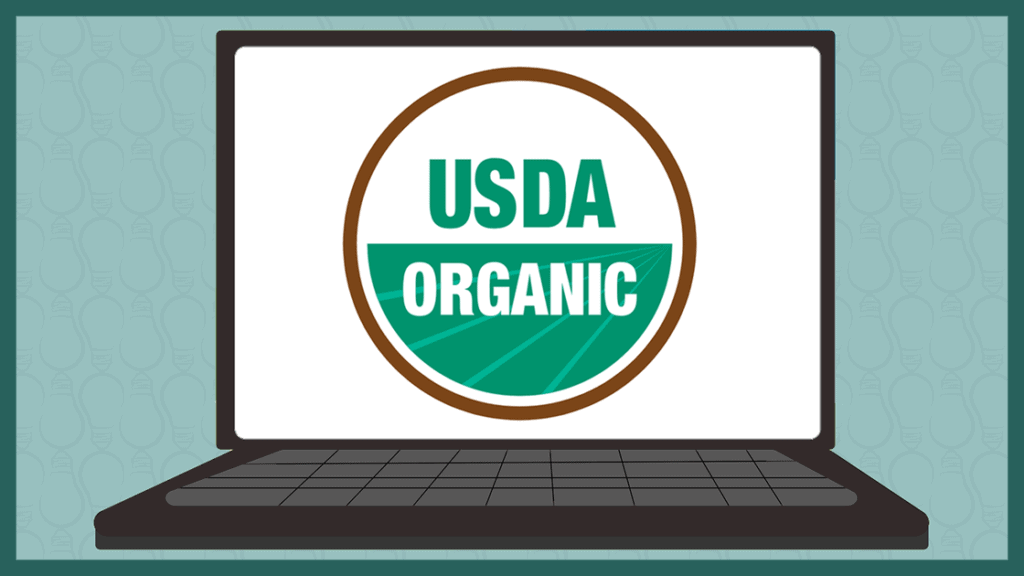USDA recently published their Organic Product Fraud Prevention training in a free, online, and public format. This is part of the training for USDA inspectors. The Organic Trade Association was funded for the content we co-developed, and which I presented. Our two courses are: “Organic Fraud and the Criminal Mind” and “Preventing the Organic Fraud Opportunity.”
Link to the USDA Organic Integrity Learning Center (OILC) Training (free registration to get access): https://usda.geniussis.com/PublicStudentSignUp.aspx?AffiliateID=46B0C0
Link to the USDA OILC course offerings training catalog: https://www.ams.usda.gov/sites/default/files/media/USDA_NOP_OILC_Course_Offerings.pdf
The Organic Trade Association Led Project
The US Department of Agriculture’s National Organic Program funded a project to develop organic product fraud prevention content to train their USDA Inspectors. While the project was created before the “Strengthening Organic Enforcement” Final Rule was published, the insight and recommendations support that compliance.
The content was created through close collaboration with the USDA-NOP, Organic Trade Association (OTA), and my work in the food fraud research area. Several different resources were leveraged, including the OTA’s Organic Fraud Prevention Solutions (OFPS) program. The project also leveraged and built upon our Food Fraud MOOC courses and resources. The OFPS itself was a multi-stakeholder collaboration.
This type of multi-stakeholder project helps harmonize the terms and methods for product fraud and food fraud prevention. Overall, it is helpful that there are common strategy, policy, assessment, and management terms and processes. The foundation is from ISO 31000 risk management for the assessments, COSO/ Enterprise Risk Management for calibration to the enterprise-wide risks, our food fraud prevention research for a scholarship and resource textbook, the OTA’s OFPS for common ways to meet the USDA Organic System Plan requirements, and then USDA NOP providing a guide for compliance. Other organizations such as the Global Food Safety Initiative (GFSI) provided insight on successful implementation, and INTERPOL/ Europol Operation Opson demonstrated best practices for international enforcement coordination.
USDA NOP New Organic Product Fraud Courses
Within the catalog of organic certification-related USDA courses, we created two that focused on our work.
- NOP-100: Organic Fraud and the Criminal Mind: This course presents an introduction to product fraud and key criminology and behavioral sciences insight. This insight can then be applied to identify the fraud opportunity and focus inspections and investigations accordingly.
- NOP-110: Preventing the Organic Fraud Opportunity: This course expands on the “Organic Fraud and the Criminal Mind” course to review key elements and processes for conducting an organic fraud vulnerability assessment. The course examines several case studies and applies intelligence-gathering and analysis to understand where system weaknesses occur.
Other USDA NOP Courses
While I found all of the USDA NOP courses interesting and useful, several were especially helpful for food fraud prevention. Some may seem too basic for seasoned food safety professionals, but it’s always good to review the fundamentals – especially when you’re learning about compliance directly from an agency. I’ve listed below my own “top-ten list” of other USDA NOP OILC training courses:
- Introduction to the USDA Organic System
- Sound and Sensible Organic Certification
- Fundamentals of Inspection
- Compliance and Enforcement: Adverse Actions, Appeals, and Reinstatement
- Advanced Inspections: Investigations
- Traceability Techniques
- Recordkeeping
- Organic System Plans
- Organic Regulations and Retail Labeling
- Sampling and Testing
Call to Action
This free online Organic Product Fraud Prevention training is extremely important if you receive a USDA NOP audit, since you will clearly understand how the USDA inspectors are being trained. If you do not use the USDA Organic Seal, this is still very valuable for understanding best practices that are widely adopted. Also, consider exploring the other USDA NOP courses.

